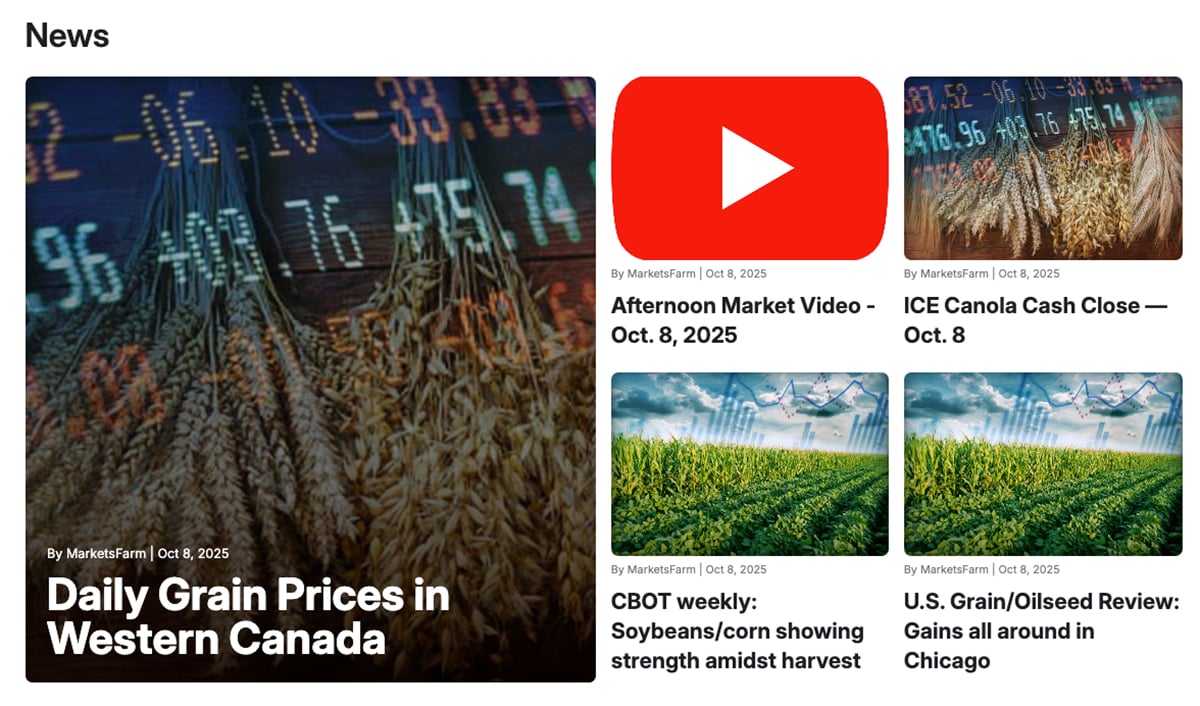STE. AGATHE, Man. Ñ Canadians and Egyptians look at temperatures differently.
For Canadians, plus 7 C is a warm late-March day. For Egyptian journalist Khameese Al Bakry, it was a bitterly cold dose of arctic weather.
“Remember, I am from Africa,” he said with a smile and a shiver as he turned up the collar of his winter coat and pulled down his hat after touring a canola crusher south of Winnipeg.
It isn’t just weather that Canadians and Egyptians view from different poles. Canadians often crow about canola being the healthiest vegetable oil, but to many Egyptians it has the reputation of being unhealthy and dangerous.
Read Also

VIDEO: Catch up with the Western Producer Markets Desk
The Western Producer Markets Desk provides daily updates on agricultural markets, with recent video commentary including looks into canola, wheat, cattle and feed grains.
Al Bakry, deputy editor-in-chief of Al Ahram newspaper in Cairo, revealed the problem canola faces in many developing world markets: it is little known, and much of what is known is false and malicious.
“People are very concerned about whether it can cause cancer,” Al Bakry told a group of agricultural writers later that day in Winnipeg with the help of a translator.
“There is significant opposition from the population.”
Al Bakry was in Canada as a guest of the Canadian government and the Canola Council of Canada, touring canola facilities and meeting processors, scientists and government experts as part of a backgrounding exercise he wanted to undertake before an upcoming scientific conference.
Egyptian scientists have researched canola oil, which is little used in Egypt, and concluded it is safe for human consumption. But because canola is so widely distrusted by the Egyptian population, the government has organized a conference in May bringing Canadian, American and Australian scientists to Alexandria, Egypt, to discuss canola oil.
Al Bakry said canola’s bad reputation came from corruption within the Egyptian government. Palm oil interests used crooked officials to spread false information about canola so that their oil would not lose market share.
“They had connections with the importers of canola oil,” said Al Bakry in translation.
“They went full speed ahead to destroy canola oil.”
The campaign worked. Al Bakry said the common people in Egypt consume huge amounts of oil because they deep-fry almost everything they eat, but almost none of that oil is canola. Only upper class, educated people consume canola oil and believe that it is healthy.
“Canola doesn’t sound good in the ears of the public,” said Al Bakry.
Even though Al Bakry said canola’s bad repute came from corrupt officials and false information, he still seemed skeptical about canola oil.
“Why does it have such a bad reputation around the world?” he asked the agricultural writers. He also wanted to know why Canadians still use corn, soybean and olive oil if domestically produced canola is so good.
After leaving Winnipeg for Ontario, he was scheduled to tour Canadian supermarkets to see that Canadians really do consume a lot of canola oil.
Egypt now produces much of its own vegetable oil. Cottonseed oil, corn oil and sunflower oil are produced in the country.
But the Egyptian government would like to see more canola oil consumed and it hopes that some of it can be produced from canola crops in northern Egypt.

















